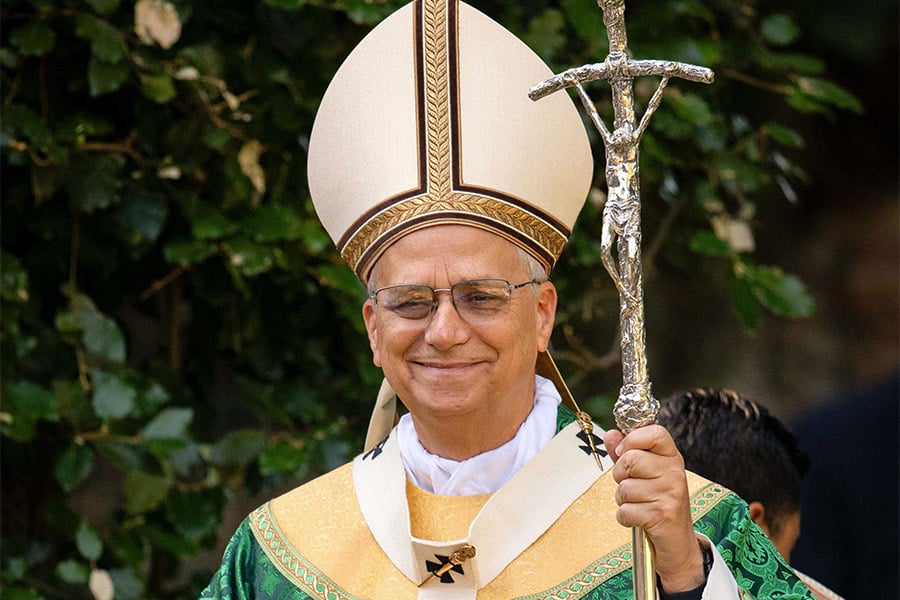Clergy sexual abuse has mutilated the church. It has scourged Christ’s body. Like a rock dropped in the water, the ripples stretch out far, and they continue to reach far beyond the sins perpetrated in darkness.
And, naturally, this devastating reality casts a shadow over any new pontificate in our day. Perhaps the first-U.S. born pope can begin modeling the wisdom from former U.S. Supreme Court justice Louis Brandeis, who penned in 1913 the memorable maxim, “sunlight is said to be the best of disinfectants.”
Recent papal elections have been shaped by the sexual sins committed against minors by clergy, too. Chicago’s late Cardinal Francis George went so far as to raise the issue, ahead of the 2013 conclave, stating it was a legitimate question to wonder if papal candidates “have a past” and could be compromised even by ties to others guilty of sexual misconduct.
All of this makes hopeful some recent words from Pope Leo XIV on this and related matters.
In a homily on May 31, during a Mass at which he ordained priests for the first time since his election, Pope Leo stressed the importance of integrity, authenticity and transparency in the life of priests — antidotes to the double life that some priests have lived.
Leo quoted St. Paul’s farewell discourse, in which he says, “You know how I lived among you the whole time” (Acts 20:18). Leo explained: “Let us keep this expression clearly in our hearts and minds! ‘You know how I lived:’ the transparency of life. Lives that are known, legible lives, credible lives! We live among the People of God, so that we may stand before them as credible witnesses.”
Important words to hear from the pope today. Only with this important instruction can the church begin to emerge more fully from the revelations of clergy abuse.
Leo’s admonition to priestly credibility come also as many are still questioning how seriously the matter is being handled in Rome, particularly as some high-profile abusive clerics seem to have been protected by Pope Francis, such as the former Jesuit and renowned artist Father Marko Rupnik, who allegedly committed a variety of sexual abuses in the context of creating artwork adorning chapels and shrines throughout the world.
Priestly credibility is not an end in itself, of course. It is a model set forth for God’s people and the world. Leo concluded his thoughts on the topic in the same homily: “Together, then, we will rebuild the credibility of a wounded Church, sent to a wounded humanity, within a wounded creation. We are not yet perfect, but it is necessary that we be credible.”
In a message on June 20, sent to attendees at a play dramatizing the heavily criticized work of a journalist who exposed deep-seated corruption and abuses within the Peruvian ecclesial movement Sodalitium Christianae Vitae, Pope Leo again spoke on the church’s recovery from the revelations of abuse among those in the hierarchy.
Leo, who spent nearly a decade as a bishop in Peru, was well-acquainted with the abuses in the Sodalitium and, in his position within the Roman Curia, backed up the claims of survivors that led to the group’s dissolution in January.
To the victims, Pope Leo said, “Your fight for justice is also the Church’s fight. A faith that does not touch the wounds of the human body and soul has not yet understood the Gospel.”
“It is urgent to ingrain throughout the Church a culture of prevention that does not tolerate any form of abuse — neither of power or authority, nor of conscience or spirituality, nor sexual,” he said. “This culture will only be authentic if it is born of active vigilance, transparent processes, and sincere listening to those who have been hurt.”
And, speaking to communicators in the same message, Pope Leo encouraged the necessary work of exposing abuses in ecclesial life: “Do not be afraid. Through your work, you can be builders of peace, unity, and social dialogue. Be sowers of light in the shadows.”
Read More Commentary
Copyright © 2025 OSV News
